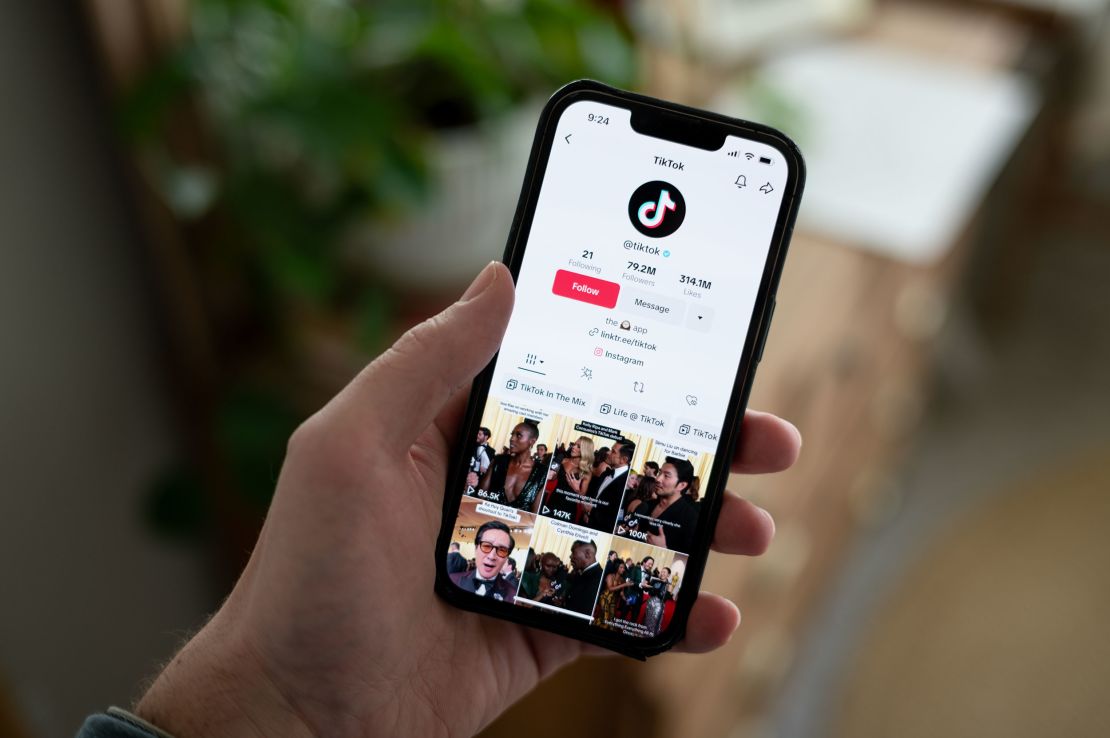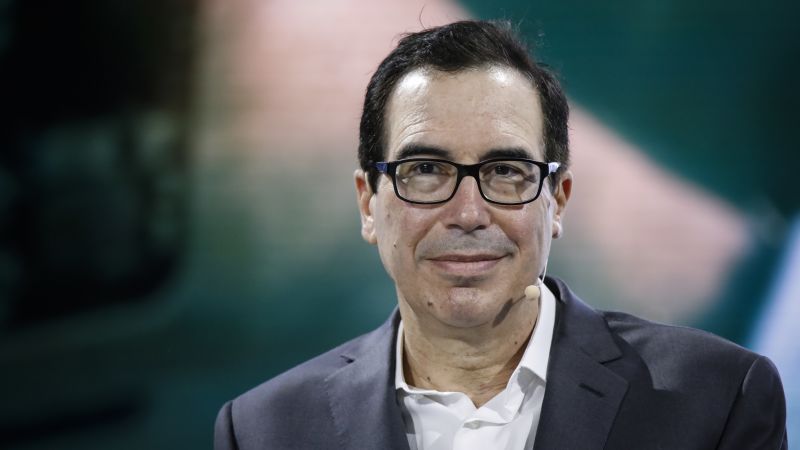After Donald Trump’s presidency ended, his Treasury secretary, Steven Mnuchin, did what many former Cabinet members do after they stop serving: take a vacation from the public spotlight.
Typically, when they get bored of that and worry they’re no longer relevant, they start doing TV interviews, fireside chats, joining company boards and becoming adjunct professors.
What they don’t tend to do is throw a $1 billion Hail Mary to a bank that’s the Wall Street version of the dog in the comic-turned-iconic “this is fine” meme (see here if you have no clue what I am referencing). And what they certainly don’t do just one week later is announce they’re interested in buying TikTok.
But Mnuchin is having a moment. Again.
Nine months after President Joe Biden was inaugurated and Mnuchin left the Treasury Building, Mnuchin formed a new private equity group, Liberty Strategic Capital.
His firm bills itself as “focused on investing in dynamic global technology companies.”
Up until last week, only one of his firm’s major investments made big headlines. That was a minority stake in Lionsgate, the production studio behind hits such as “Nurse Jackie” and “Mad Men.”
That was pretty on-brand for Mnuchin though, even if it wasn’t quite as much for his firm. Sandwiched between his Trump era and his $46 million Goldman Sachs era, he had a side hustle of financing Hollywood productions like “Avatar” and “Batman v. Superman: Dawn of Justice.”
The rest of the firm’s investments were concentrated in cybersecurity, except for a few things here and there.
But since last Wednesday, Mnuchin’s private equity deal printer has been working overtime.
His firm alone didn’t make the $1 billion investment in ailing New York Community Bank, but Liberty ponied up $450 million, the majority of the investment. The remaining sum came from a conglomerate of other private equity firms and a vague group of “other institutional investors and certain members” of NYCB, according to an announcement the regional lender made last week.
Mnuchin didn’t give them (or anyone) the moola out of the goodness of his heart.
As incidental as it was to see his name come out of the woodwork, it wasn’t entirely off-brand for him to swoop into a bank either. Mnuchin led the group that bought failed subprime lender IndyMac for pennies on the dollar in 2009, about a year after the Federal Deposit Insurance Corporation, took over the California bank following a run on deposits.
Mnuchin later renamed it OneWest. It got into a bit of a kerfuffle with the government over its foreclosure practices and ended up paying millions in fines to compensate customers. But that’s just peanuts: He sold to CIT Group for $3.4 billion in 2014. When Mnuchin left CIT less than two years later, he received a $10.9 million severance package.
As if the NYCB deal wasn’t enough to keep him busy, Mnuchin said Thursday he’s assembling a team of investors to make a bid to buy TikTok.
That came just one day after the House passed a measure to ban the Chinese-owned social media giant or force a sale to a US-operated owner.
“It’s a great business and I’m going to put together a group to buy TikTok,” Mnuchin told visibly stunned anchors on CNBC Thursday morning. “You’re trying to buy TikTok?” Andrew Ross Sorkin, an anchor on CNBC’s “Squawk Box,” interjected.
Even though TikTok is likely unprofitable, “it’s worth a lot of money,” Mnuchin said.
Mnuchin said he would give existing US investors the option to roll over their stakes in TikTok but stressed that no entity would have more than 10% control. But he declined to name any individuals on the team he’s putting together.
“There’s no way that the Chinese would ever let a US company own something like this in China,” he said. From his time in the administration, he said he’s seen evidence that having TikTok on your phone gives it the ability to “collect an awful lot of data.” (Security experts have raised concerns about TikTok’s Chinese ownership but have not made the conclusion that China is actively collecting data from TikTok customers. TikTok denies that it is sending information about customers to China.)

But there’s a pretty big caveat to anyone who thinks TikTok is up for grabs.
ByteDance, the parent company of TikTok, may never be allowed to be sold to any company outside of China because of measures the government began putting into place in 2020. The Chinese government deems TikTok a sensitive technology and officials have said they’d oppose any forced sale that would involve transferring it into the hands of a foreign owner.
Mnuchin, though, said he’s looking to find a solution where the Chinese government would allow TikTok to be sold “without taking what they believe is critical technology.” It’s not clear what he meant by that.
He and TikTok didn’t respond to CNN’s requests for comment.
The other side of the equation is that the TikTok bill the House passed is now heading to the Senate, where it faces a much larger uphill battle in getting approved. President Joe Biden said he would sign the bill into law if the Senate passes it.
Even if that happens, any kind of TikTok ban would likely be fought in courts. Already Montana was prevented from moving forward with a law to effectively ban the app after a federal judge blocked it last year.
In the unlikely event Mnuchin & Co get to own TikTok…
Putting that aside, if somehow, some way, China hands over the keys to TikTok to Mnuchin and his crew, the app would still technically have elements of foreign control.
Mnuchin may be the founder and managing partner of Liberty Strategic Capital, but Saudi Arabia is reportedly covering a big chunk of his firm’s tab. That’s because Mnuchin got $1 billion in seed money from a Saudi sovereign wealth fund controlled by Crown Prince Mohammed bin Salman, the New York Times reported in 2022.
The Saudi Public Investment Fund, which also owns a massive stake in TikTok rival Meta and many other major brands from around the world, does not currently own a stake in ByteDance.
Liberty Strategic Capital didn’t respond to multiple requests for comment.
Read the full article here















